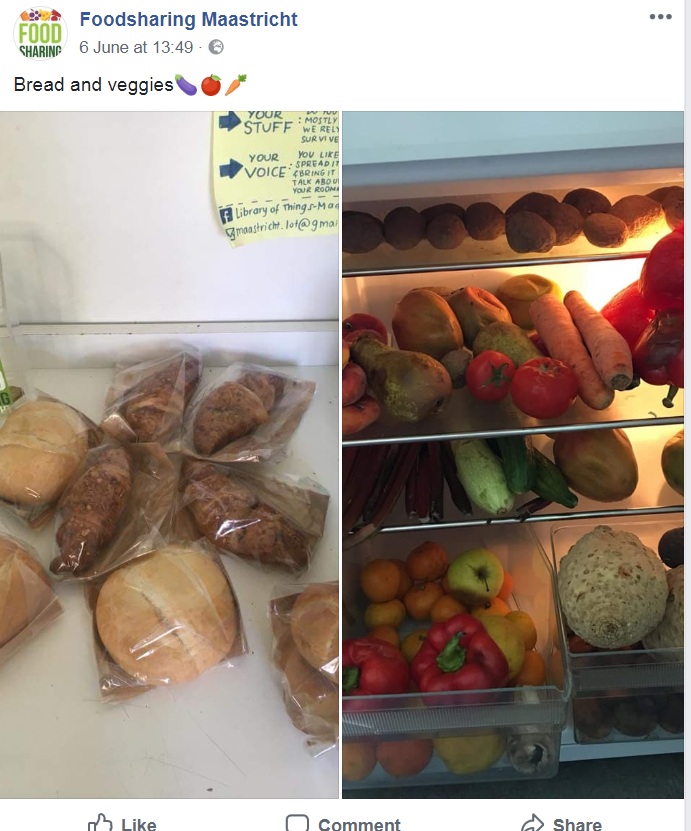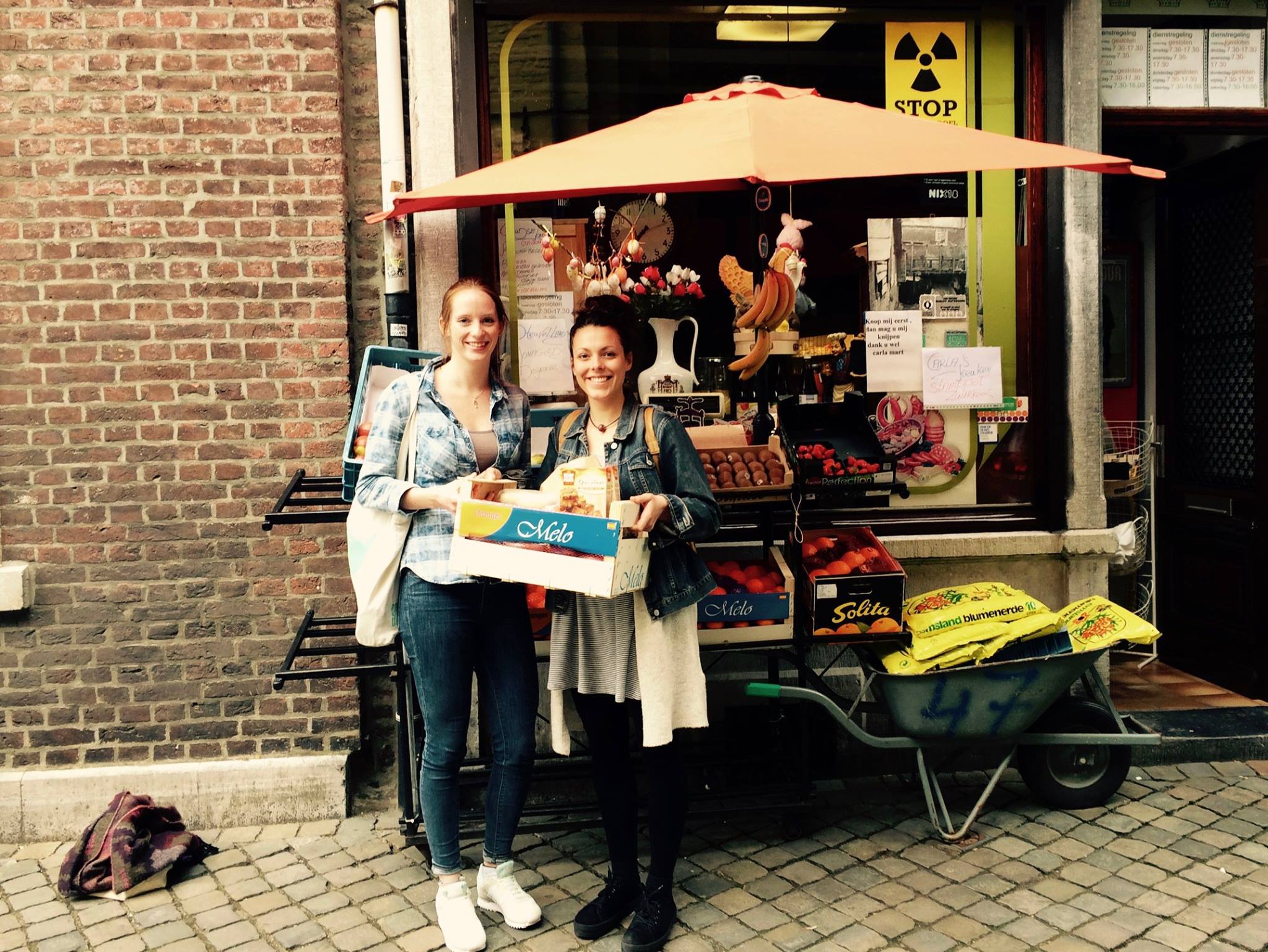There is such a thing as a free lunch – a sustainable student initiative
Free food may sound too good to be true but it may well be one of the most ethical options on the menu. Foodsharing Maastricht is a student initiative that collects leftover food from local supermarkets and hotels. The food can then be picked up by any comers in Building X, Tapijnkazerne.
Four times a day, the student volunteers fill the shelves and fridges with vegetables, fruit, sandwiches or croissants that would otherwise be thrown away. They post a photo in their Facebook group – and everyone is welcome to take what they like. The initiative has been steadily gaining popularity since it was launched a year ago by Klara Strecker (European Studies) and Nicola Bauer (European Public Health), who met in Maastricht and became best friends.
“We are both from Germany, where food-sharing is much more common – we were surprised that it doesn’t exist here, because the city and especially the university are quite focused on sustainability.” Klara adds that “while the Netherlands is a very progressive country in so many ways, measures to reduce waste or packaging in supermarkets are only just starting to gain momentum.”
Through social media, they got in contact with UM’s Green Office – also student-run – who helped them promote the idea and suggested they take part in UM’s Student Idea Competition. They made it to the shortlist and received training and workshops on how to develop and pitch their idea. “We pitched it to a panel including the vice-president – it was quite exciting,” says Klara.
First prize in UM’s Student Idea Competition – and a room with a view
Klara and Nicola won first prize, worth €400, which they spent on setting up and promoting the initiative. Following their presentation, the university decided to grant them a room for free until 2022: “UM has been very supportive from the beginning – they have ambitious sustainability development goals and this initiative is very much in the same spirit.”
Nicola remembers how, during their initial struggles, she and Klara were quite discouraged by the negative reactions from big supermarket chains: “They seemed to be afraid it might devalue their brand – they don’t want to be associated with food that doesn’t look perfect and they’re also afraid of litigation in case of food poisoning.”
While it didn't really play into their cards, the two students were glad to see that, unlike the big chains, many small businesses were already taking care of leftover food, donating it to foodbanks or distributing it among family and friends.
Provided by local merchants; powered by local students
In the end, the two managed to establish a reliable network of suppliers, local supermarkets, a hotel and the university catering services. “I’ve felt so much more attached to the city since we started talking to the locals. It feels like we are doing something for the community and it’s rewarding to see the impact this has had.”
Klara and Nicola also had to organise a network of volunteers to help them run the show. “It’s all very informal: people who want to help approach us online, we show them how the pick-up works, what to throw away, when and how to clean the place, etc.” It can be difficult to balance the busy schedules – especially around exam time – with their obligations to the suppliers, but everyone is motivated and flexible.
“We have a stable network of around 35 people now, but some of them are moving on, of course – Nicola, for example, will move to Cologne at the end of the semester – so new volunteers are always welcome!” says Klara, who, partially motivated by the food-sharing initiative, plans to stay in Maastricht for the master’s programme Sustainability Science and Policy.
It turns out: students like free food
“Initially, we were a bit afraid that there might be a stigma – but people took up the offer gratefully and usually the shelves are empty within an hour.” The two have accrued more than 2,000 followers on Facebook, mostly UM students, but the group is also open to local people.

Social media campaigns and raising awareness among faculties have ensured that a diverse group of people are making use of the service; the fact that the room is in a neutral location also helps. “We didn’t want it to be tied to a faculty or associated exclusively with a certain type of student; it’s for everyone.”
They are pleased to have contributed to their primary aim of reducing food waste, but are under no illusion as to the motivation of most of the people dropping by: “By and large, people come because it's free food, not so much to save the planet – but that’s fine.” So come along and get some food – feeling righteous is optional.

Klara Strecker and Nicola Bauer, the founders of Foodsharing Maastricht
Their headquarter/larder is in the Tapijnkazerne, Building X, Sint Hubertuslaan 12.


